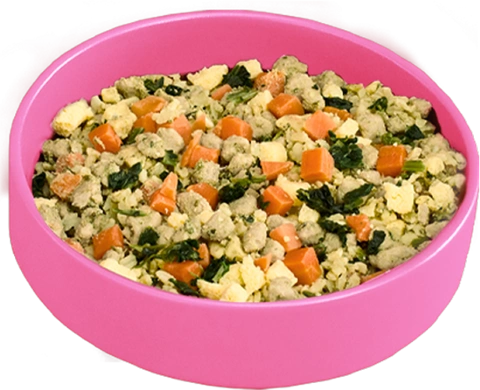The Australian Shepherd is a lively, energetic, and highly intelligent dog. With smarts and agility, your Aussie has personality and a drive to solve whatever problems come her way. However, this loyal companion may be prone to skin allergies that can make her life uncomfortable and your life more expensive with repeated visits to the veterinarian.
Type of Coat
The Australian Shepherd has a thick, medium-length coat that is weather-resistant to keep them warm during the cold winter months. As the Aussie is a highly adaptable breed, dogs living in more temperate climates will have thinner, lighter coats, which sometimes affects the health of their skin. This breed’s coat can vary in terms of style, ranging from flat to wavy with shorter hair on the head, ears, and legs. Feathering on the legs and a full, thick, furry neck and chest are typical characteristics for the breed. The Aussie sheds year round and requires regular brushing and grooming.
Susceptibility to Skin Allergies
Australian Shepherds are prone to developing skin allergies, likely due to genetic factors, but as in most dogs this is potentially influenced by their genes, their upbringing, their exposure to allergens, and their general exposure. If left unattended, skin allergies can wreak havoc on your dog’s skin; persistent itching can lead to hot spots or damage to the skin due to excessive rubbing, scratching, and biting. In severe cases, bacterial and yeast infections may develop. That luxurious Aussie coat can quickly become a nightmare with mats, foul odor from infections, and other issues.
Allergy Locations
Most Australian Shepherds develop allergies in specific areas of the body. Often, this breed will have allergies manifest on their legs, paws, and hind end; dogs suffering from allergies in these locations may chew on these spots regularly. The Aussie may also suffer from allergies in other areas of the body - no dog is the same. The ears are another particularly allergy-prone location and a source of discomfort and pain. Ear infections, if recurrent, should prompt questions about whether your Aussie could have underlying allergies as the inciting cause.
Causes of Skin Allergies
Skin allergies should be distinguished from other skin conditions in your Aussie. Allergies refer to an immune system disorder whereby the body has an inappropriate and severe response to pollens, dust mites, fleas, or foods in the environment. Remember that Aussies can get an infrequent skin infection (hot spot) that isn’t caused by an allergy. Allergies usually start around 1-2 years of age if caused by allergens in the air, but can start earlier if food is the culprit. Some Aussies have also been reported to develop allergies even later in life.
Treatment Options
If the cause for your Aussie’s allergies is a combination of genetics and environment, how best can you determine the cause and appropriate treatment? The first step is to treat secondary yeast or bacterial infections - your vet can help you to make Aussie a lot more comfortable. You may also be prescribed medications that block histamines or the inflammatory process to provide temporary relief. If the allergy is related to atopic dermatitis or allergens found he environment, it’s to best to test for that with intradermal (under the skin) injections of allergens by your vet or a vet dermatologist is the best way as you can see the allergic response happening. Blood tests have improved some but are still considered a less reliable method of determining allergens.
Short-term treatment options for addressing and quelling skin allergies range from supplements to medications to special shampoos. Fatty acid supplements, or foods containing fatty acid containing foods like fish oil, can in some cases reduce or even eliminate the itching altogether by reducing inflammation. A diet trial can be both a diagnostic tool for your Aussie and a treatment if they are food allergic. Anecdotally, simple diets with whole food ingredients have been reported to help dogs even without food allergies. Medications such as topical antibiotic ointments, over-the-counter antihistamines, and prescribed steroids offer other alternatives to controlling skin allergies. Newer drugs target pathways of the immune system by trying to decrease the inappropriate response to normal levels of allergens. Dog shampoos that contain ingredients such as oatmeal, aloe vera, tea tree oil, and hydrocortisone can alleviate itching by soothing the irritation on the skin’s surface. Remember of course that in some climates, especially, fleas can wreak havoc on the skin and hide in an Aussie’s coat quite easily. So flea, and even tick control is important if there’s any chance of coming across those pests. And remember, Aussies and any dogs can be allergic to fleas, whereby a single flea bite can cause issues over the whole body.
If you suspect a food allergy diet, then follow the steps below to conduct a food trial or elimination diet. Also, check out our comprehensive guide to dog food allergies.
The best way to identify your Aussie’s food allergy is to feed her entirely new and generally pure food for a minimum of eight weeks. Feeding your dog a non-contaminated, simple ingredient diet for the entire trial period will provide the most accurate results. The diet can be cooked or commercially produced. Dog food that has single sources of animal protein, vegetable protein, and carbohydrate calories is an ideal choice for Aussies with allergies; consider fish and potato or rabbit and peas. Avoid foods that include other natural flavors as those can consist of unidentified proteins.
During the food trial, do not feed your Aussie any treats, table food, supplements, or flavored medications that do not align with the new simple ingredient diet. After at least eight weeks on this diet, you will need to feed your Aussie her original food and watch for any allergic reactions that may occur. Reintroducing the foods that you suspect as the source of allergens is genuinely the only way to determine if an allergy exists.
For allergens caused by diet, it is critically important to speak with your veterinarian and find a diet that is healthy and natural for your Australian Shepherd. Your dog should be switched to a new food gradually to avoid stomach upset. A board-certified veterinary nutritionist, your primary veterinarian, and/or a veterinary dermatologist (who specializes in all things allergies) can help you create a plan to change your dog’s food in a methodical, safe fashion. The addition of an inexpensive probiotic supplement to a fresh food diet may help manage, reduce, or prevent the development of a dog’s allergies based on exciting new research in animals and in people.
Key Ingredients to Fight Allergies
An excellent solution for an Australian Shepherd’s food allergies is a pure, wholesome diet. Foods that are rich in healthy fats, certain omega-6 fatty acids (linoleic acid, gamma linolenic acid) and Omega-3 essential fatty acids like EPA and DHA can often alleviate a dog’s dry, flaky skin and in some cases resolve itching and discomfort. Sources of these oils could include sunflower oil, blackcurrant seed oil, and fish oil, respectively. Other critical ingredients to look for in your Aussie’s diet includes essential amino acids, B-vitamin complexes, and zinc.
Consider the following suggestions for addressing the variety of allergic reactions that Australian Shepherds may develop:
| Condition | Dietary Needs and Adjustments |
|---|---|
| Coat Color Changes | Increase amino acids which can be found in protein (>75 grams per 1000 calories); use our calculator to convert a label percentage to the caloric basis (grams per 1000 calories) |
| Concurrent GI Signs | Avoid foods with tryptamine and histamine such as dairy or fermented vegetables and meats (yes, this includes bacon); try a simple ingredient food trial |
| Chronic Itching and Dermatitis | Fortify the diet with Vitamin E, B Vitamins, Zinc, and omega-6 and omega-3 fatty acids found in fish oil; add a probiotic; try a simple ingredient food trial |
| Dull Coat and Scaling | Adjust EPA and DHA levels in the diet; try a food that has added zinc |
| Dandruff and Crustiness | Add Zinc and Vitamin A levels |
How Fresh Food Can Help
Fresh food diets composed of real ingredients that include foods rich in fatty acids, with ingredients you can see, and higher amounts of antioxidants within the food can help your Aussie’s allergy treatment plan. Diet is what you provide for your Aussie every day and so it’s not surprising it can have effects for dogs with allergies and for promoting overall health. While commercial dry kibble is cheaper and has a longer shelf life, no kibble uses the same ingredients as found in fresh food. With allergies, as with any condition, keeping your Aussie lean is also critical to controlling inflammation. That’s why an individually-portioned diet can be so helpful, especially from companies that consider the unique energy needs of Australian Shepherds.
Fresh dog food should also include essential fatty acids, such as those mentioned above, to keep your Aussie’s skin and coat healthy. Fatty acids and certain vitamins and minerals work to strengthen the immune system and fight inflammation resulting from an allergic reaction. Additionally, custom, limited-ingredient recipes are available that minimize your dog’s chances of exposure to prior food allergens within her diet.
About Nom Nom
Fresh foods, perfectly portioned, cooked and inspected in our facilities, are ideal for Australian Shepherds suffering from allergies. Nom Nom’s fresh dog food recipes are made from scratch using high quality ingredients and delivered in small batches to your door.
Each serving of food also includes the Nutrient Mix which is full of critically important vitamins and minerals that give your dog the balanced, healthy nutrition needed to maintain skin and coat health. Vitamins A and E promote and protect the surface of the skin. Minerals such as selenium and zinc help to maintain a dog’s immune function as well. These components of the Nutrient Mix are just what your Aussie needs to help those allergy symptoms.




